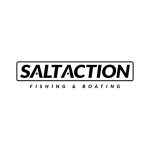Boating at night can be a thrilling and captivating experience, offering a unique perspective on the open waters. However, navigating saltwater at night presents specific challenges that demand special attention to safety precautions. To ensure a safe and enjoyable nighttime boating adventure, it is crucial to be aware of the rules and best practices tailored specifically for saltwater boating at night.
In this guide, we'll walk you through essential guidelines to help you navigate the darkness with confidence and make the most of your nocturnal maritime journey.
Familiarize Yourself with Navigation Lights
A fundamental rule for nighttime boating is to ensure your vessel is equipped with proper navigation lights. These lights are crucial for allowing other boaters to determine your position, direction, and status, which aids in collision avoidance. Make sure you are familiar with the specific lighting regulations for your vessel based on its size and category, as prescribed by maritime authorities.
Carry Essential Safety Equipment
Maintaining a well-stocked safety kit is vital for any boating excursion, but it becomes even more critical during nighttime journeys. Ensure your vessel carries all necessary safety equipment, including:
- Life jackets for all passengers
- A flashlight with extra batteries
- A first-aid kit
- Distress signals
- A whistle or horn
- A fire extinguisher
- A working VHF radio for communication
Prepare Adequate Lighting
In addition to navigation lights, it is wise to provide sufficient interior and deck lighting on your boat. Well-illuminated areas will help prevent trips and falls, aid in visualizing potential obstacles, and allow you to read charts and instruments more easily. Use soft red lights for interior illumination to preserve night vision while reducing glare.
Plan Your Route and Stay Within Familiar Waters
Navigating unfamiliar waters at night can be particularly challenging. To enhance your safety, plan your route in advance and stick to areas you are familiar with. Utilize nautical charts, plot waypoints, and use electronic navigation tools to maintain a clear understanding of your route and any potential hazards.
Stay Alert and Communicate Effectively
Nighttime boating requires heightened awareness and vigilance. Continuously scan the waters for other vessels, obstacles, and changes in weather conditions. Ensure effective communication with your crew and other boaters using your marine VHF radio to relay important information and receive updates on conditions.
By following these guidelines and preparing adequately, you can make your nighttime boating experience both safe and enjoyable. For all your boating needs, including safety gear and lighting solutions, check out our recommended products.





